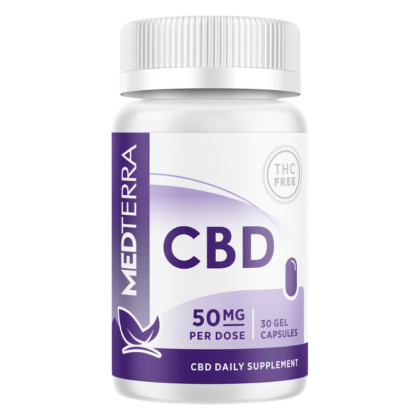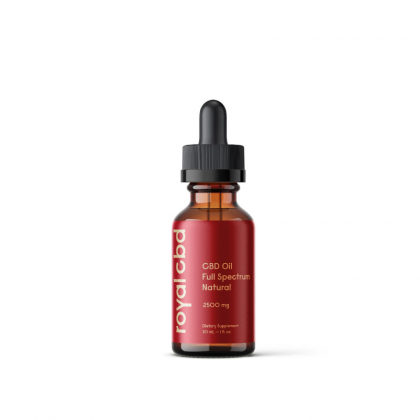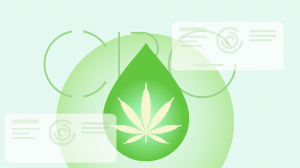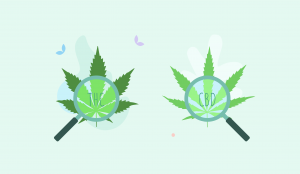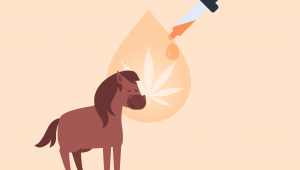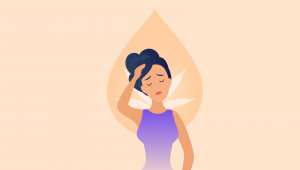| Total CBD: | 750 - 3000 mg |
| Potency: | 25 - 100 mg/capsule |
| Cost per mg CBD: | $0.03 - $0.07 |
| Extract Type: | Isolate |
| THC Content: | 0.0% |
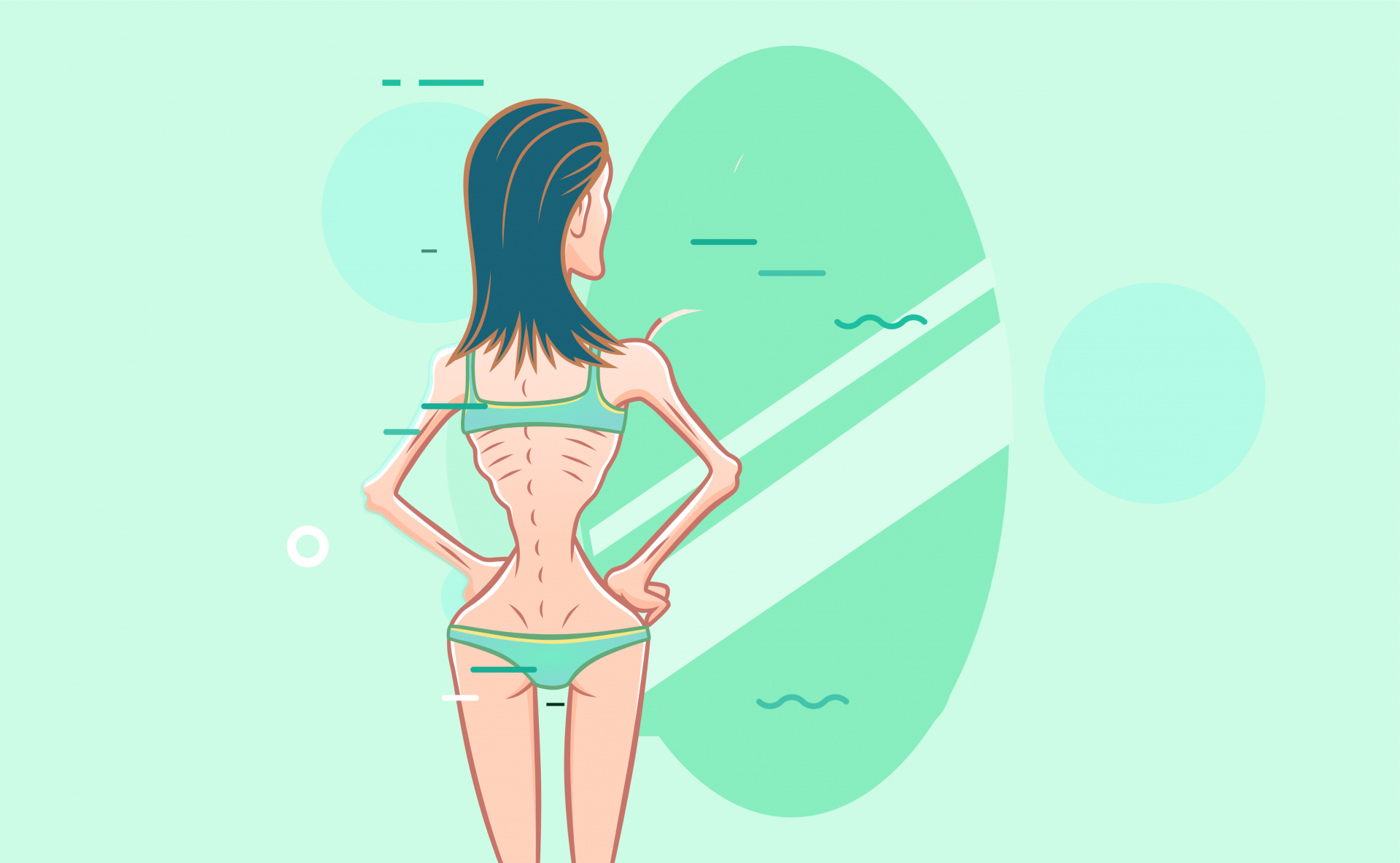
Evidence based
CBD Oil for Anorexia: Can It Help Treat Eating Disorders?
CBD can help with some of the side effects of anorexia — but the real stars of the show are THC, CBC, and CBN. Learn how to use full-spectrum hemp oils.
According to data from the National Eating Disorder Association, as many as 30 million people are thought to suffer from eating disorders like anorexia in the United States alone.
The eating disorder can wreak havoc throughout the body through widespread nutritional deficiencies.
Compared to other mental illness, anorexia nervosa has one of the highest death rates of them all. Treatment of anorexia should address both psychological and physical problems.
Pharmaceuticals aren’t always the answer when it comes to physical health. It’s important to find new, effective methods of boosting hunger levels and the desire to eat in these individuals.
Here, we discuss how CBD oil can increase hunger and lower the impact anorexia has on the body.
We talk about our top 3 CBD oils for the job, and how you can start using it today.

What is Anorexia Nervosa?
Anorexia nervosa refers to a medical condition where sufferers purposely restrict their own energy intake in order to prevent weight gain.
It’s most often associated with a body dysmorphia – a mental disorder where the sufferer becomes obsessed with perceived flaws that are actually nonexistent.
It’s common in people who suffer from anxiety or poor self-esteem, and it’s important to point out that the condition is a lot more complicated than it sounds.
People with anorexia often have underlying issues driving the condition such as:
- Intense fear of gaining weight
- Disturbed body image
- Social anxiety disorder
- Depression
- History of abuse
- Social isolation
This condition often makes people see themselves as overweight when they are already dangerously underweight and malnourished.
The Signs & Symptoms Of Anorexia
- Amenorrhea (lack of a period)
- Anemia
- Brittle nails
- Constipation
- Dehydration
- Dizziness
- Dry skin
- Fatigue
- Hair loss
- Heart conditions
- Kidney failure
- Liver damage
- Low blood pressure
- Osteoporosis
- Poor immune function
- Poor wound healing
- Seizures
- Severe weight loss
Risk Factors for Anorexia
Since this condition is a psychological disorder, the causes are complex and can vary a lot from one person to the next.
Some causes include:
- Low self-esteem
- Genetic factors
- Obsessive-compulsive disorder (OCD)
- Depression
- Bullying
- Post-traumatic stress disorder (PTSD)
- Anxiety
- Family abuse
Conventional Support For Anorexia
Since anorexia is primarily a psychological condition, the main treatments doctors employ are regular therapy sessions, anti-anxiety medications, and antidepressants.
The main goal of treatment is to address issues with self-esteem and any underlying conditions such as depression or anxiety.
If you are suffering from anorexia, please talk to your healthcare professional and seek professional help. Remember you are not alone and there are several support groups online such as Looking Glass.
How CBD Oil Helps with Anorexia
There are a number of herbal supplements that are able to improve anorexia nervosa by increasing hormones involved with hunger and satiety – the feeling of being full.
Perhaps the most important option is cannabis.
You may be familiar with a common stereotype of people who use marijuana:
They eat A LOT.
Well, this isn’t a myth.
Many of the cannabinoids in the cannabis plant have been shown to increase our hunger levels, the most significant is THC.
The problem with this is that, since THC is the main cannabinoid responsible for the psychoactive effects of cannabis, it is still forbidden in many countries and US states. For this reason, most CBD oils on the market contain less than 0.03% THC content.

But not to worry! There is more than one way in which CBD oil can help relieve the symptoms of anorexia:
1. CBD May Improve Mood
CBD oil offers a surprising range of mood enhancement benefits.
This is important because a low mood is often considered one of the main drivers of anorexia.
Antidepressant drugs such as SSRI or SNRI medications are a popular choice among doctors for treating this condition.
In the case of the cannabis plant, the most significant effect on mood comes from CBD itself, which has been shown to relieve depressive symptoms in animals [3].
Other compounds in the full-spectrum oil, such as terpenes (borneol, eucalyptol, limonene, beta-caryophyllene, and d-linalool) have also been reported to have extra antidepressant and mood-enhancing effects.
Other cannabinoids, such as cannabichromene (CBC) have also shown to offer antidepressant activity [4].
CBC, like CBD, is non-psychoactive and is the third most abundant cannabinoid in the plant.
Despite many researchers reporting this cannabinoid as being even more medically relevant for things like mood and inflammation than CBD, there is still virtually no high-level research studies published on this compound.
2. Full-Spectrum Hemp Oil May Boost Appetite
With anorexia, we can experience a massive shift in the hormones that control appetite.
Normally, when we eat a meal, our fat cells release a hormone called leptin. This hormone curbs our appetite and tells us we’re full.
Conversely, another hormone, known as ghrelin, stimulates our hunger.
People with anorexia often have dysfunctional hunger hormone balance, feeling satiated even when they should be starving.
The cannabinoids, especially THC, kickstart hunger cravings by essentially “flipping the hunger switch” in the hypothalamus of the brain [7]. It also increases the production of ghrelin — the hormone responsible for making us feel hungry [8].
THC works on this region of the brain through the CB1 receptors [5]. These receptors control a wide range of functions in the body but are especially prominent in the hypothalamus.
CBD & Appetite
Contrary to popular belief, CBD does not increase appetite. In fact, it has the opposite effect, lowering appetite overall.
I know what you’re thinking;
“Shouldn’t this be avoided with people who are suffering from anorexia then!?”
It’s not that simple.
CBD on its own has been shown to inhibit appetite, making it important to stay away from CBD isolates (products containing ONLY CBD).
However, CBD has also been shown to boost the effects of THC, including its effects on appetite, making a blend that contains both of these cannabinoids even better at boosting appetite levels overall.
This is why we always recommend using only cannabis oils that are considered “full-spectrum”. Even if the THC content is very low, these are more effective than CBD oils without any THC at all for treating anorexia.
If you live in a legal state, or in a country where cannabis oils of all kinds are legal, you’re best to go for something with a 1:1 ratio of THC to CBD.
Other cannabinoids, such as CBG (cannabigerol) have also been shown to increase appetite — so finding high-grade CBG products are a better option than pure CBD products.
3. CBD Oil Relieves Stress & Anxiety
This is the major area to be cautious of when treating anorexia with CBD oil or other cannabis oils.
CBD has been shown to lower anxiety [6], which is highly beneficial for people with anorexia nervosa.
The nervosa part of the name actually refers to the nervous and anxious nature of people suffering from this condition.
CBD oils with high levels of CBD are going to be of benefit here.
This is where it gets a bit confusing.
The problem is that CBD is better for the antidepressant and antianxiety effects, but the THC portion is going to be significantly better for appetite stimulation.
Unfortunately, CBD kills appetite, and THC can cause anxiety– so what’s the answer?
Whenever taking CBD oil for anorexia, it’s important to maintain high CBD levels to offset the negative side effects of THC. It’s useful, but not always necessary, to have at least a little bit of THC in the formula as well.
A perfect balance is going to be somewhere between 2:1 and 1:1 CBD:THC.
And remember: always choose a full spectrum CBD product.
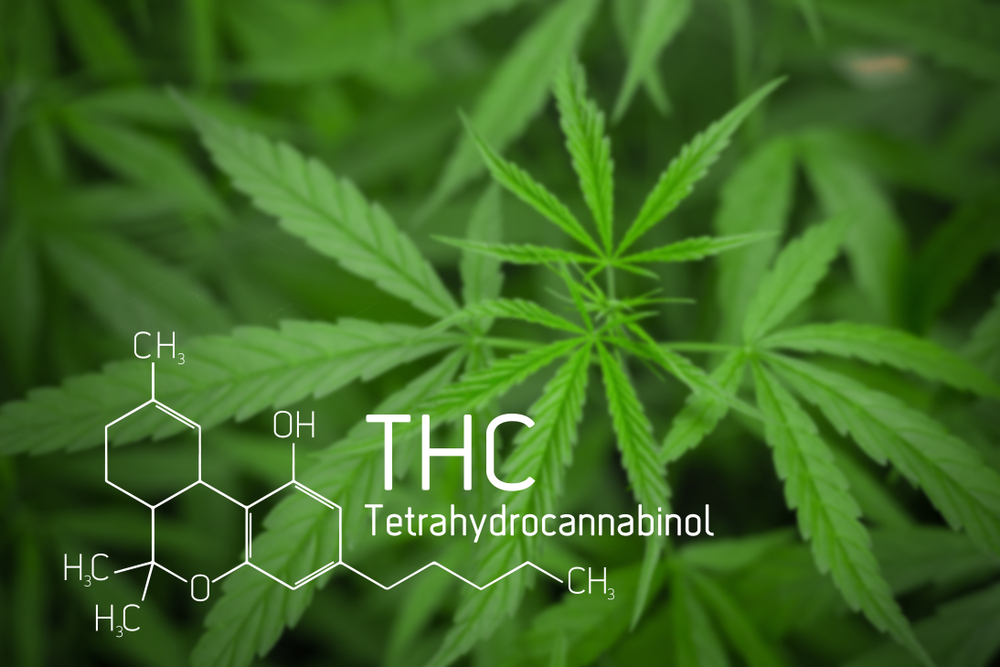
Research Studies on THC & Anorexia
A phase II clinical trial involving 18 patients with cancer-related anorexia treated with THC found significant improvement in appetite in 13 patients [1].
Other studies have shown that THC is useful for improving appetite in AIDS patients, as well as cancer patients [2].
There’s plenty of research available on the appetite-stimulating effects of THC, but as mentioned, it’s critical that we keep the anxiety-inducing effects of this cannabinoid in mind for people with anorexia.
This is why we always recommend using something with at least a 1:1 ratio of CBD to THC or something even higher in CBD.
It’s still going to offer benefits for appetite increase and help people with anorexia find the motivation to eat more food and begin recovering from the condition.
How to Take CBD Oil for Anorexia
It’s recommended that you find an extract that contains both THC and CBD — if legal where you live, of course. This is because both of these cannabinoids have separate benefits to offer anorexia.
If THC cannabis oils aren’t legal in your state, that’s okay – CBD will offer many of the same benefits.
Stay away from CBD isolates and opt for a full-spectrum extract to avoid curbing hunger even further.
Whenever trying CBD for the first time, it’s good practice to start with a smaller dose and work your way up slowly from there.
Try with about 4 mg of CBD equivalent, and work your way up by 4 mg each day until you either experience some side effects or get the results you’re looking for.
If you experience side effects, simply lower the dose the next day.
Consider Professional Help Before Trying CBD or THC
Of course, taking CBD oil alone isn’t going to do enough towards treating anorexia.
Seeing a therapist regularly to address self-esteem or depressive issues, as well as visiting a nutritionist or dietician to keep track of your dietary intake is going to go a LONG way in eliminating symptoms and building the body back up to a good level of health.
References
- Nelson, K., Walsh, D., Deeter, P., & Sheehan, F. (1994). A phase II study of delta-9-tetrahydrocannabinol for appetite stimulation in cancer-associated anorexia. Journal of palliative care.
- Misner, D. L., & Sullivan, J. M. (1999). Mechanism of cannabinoid effects on long-term potentiation and depression in hippocampal CA1 neurons. Journal of Neuroscience, 19(16), 6795-6805.
- R de Mello Schier, A., P de Oliveira Ribeiro, N., S Coutinho, D., Machado, S., Arias-Carrión, O., A Crippa, J., … & C Silva, A. (2014). Antidepressant-like and anxiolytic-like effects of cannabidiol: a chemical compound of Cannabis sativa. CNS & Neurological Disorders-Drug Targets (Formerly Current Drug Targets-CNS & Neurological Disorders), 13(6), 953-960.
- De Petrocellis, L., Orlando, P., Moriello, A. S., Aviello, G., Stott, C., Izzo, A. A., & Di Marzo, V. (2012). Cannabinoid actions at TRPV channels: effects on TRPV3 and TRPV4 and their potential relevance to gastrointestinal inflammation. Acta physiologica, 204(2), 255-266.
- Kirkham, T. C. (2005). Endocannabinoids in the regulation of appetite and body weight. Behavioral Pharmacology, 16(5-6), 297-313.
- Crippa, J. A. S., Derenusson, G. N., Ferrari, T. B., Wichert-Ana, L., Duran, F. L., Martin-Santos, R., … & Filho, A. S. (2011). Neural basis of anxiolytic effects of cannabidiol (CBD) in generalized social anxiety disorder: a preliminary report. Journal of Psychopharmacology, 25(1), 121-130.
- Patel, S., & Cone, R. D. (2015). Neuroscience: A cellular basis for the munchies. Nature, 519(7541), 38.
- Kola, B., Hubina, E., Tucci, S. A., Kirkham, T. C., Garcia, E. A., Mitchell, S. E., … & Korbonits, M. (2005). Cannabinoids and ghrelin have both central and peripheral metabolic and cardiac effects via AMP-activated protein kinase. Journal of Biological Chemistry, 280(26), 25196-25201.
Conditions that May Respond to Cannabidiol
-
Conditions Related to Health Benefits
- CBD For Allergies: Can This Cannabinoid Ease Symptoms?
- Top 10 CBD Oils For Back Pain
- Can CBD Help With Menstrual Cramps?
- CBD for Sciatica: How It Works, Safety, Drug Interactions, & Best Products
- Is CBD a Viable Treatment for Cerebral Palsy?
- CBD Oil For Sleep
- CBD For Psoriasis: Can CBD Help to Alleviate Symptoms?
- Traumatic Brain Injury (TBI)
- Arthritis
- Anxiety & Depression
- Weight Loss
- ADD & ADHD
- Anorexia
- Alzheimer’s Disease & Dementia
- Addiction
- ALS (Amyotrophic Lateral Sclerosis)
- Antibiotic Resistance
- Asthma
- Atherosclerosis
- Autism
- Acne
- Bipolar Disorder
- Pain
- Crohn's Disease & Ulcerative Colitis
- Diabetes
- Epilepsy
- Endocrine Disorders
- Fibromyalgia
- Fatty Liver Disease
- Glaucoma
- Hypertension
- Heart Disease
- Huntington's Disease
- Inflammation
- Irritable Bowel Syndrome (IBS)
- Kidney Disease
- Migraine Headaches
- Muscle Recovery
- Multiple Sclerosis
- Motion Sickness
- Metabolic Syndrome
- Neurodegeneration
- Cancer
- Nausea
- Neuropathic (Nerve) Pain
- Osteoporosis/Bone Health
- Obsessive-Compulsive Disorder (OCD)
- Polycystic Ovarian Syndrome (PCOS)
- PTSD
- Prion/Mad Cow Disease
- Premenstrual Syndrome (PMS)
- Parkinson’s Disease
- Schizophrenia
- Sickle Cell Anemia
- Stroke
-
Conditions Related to Products
- Ranking The Top 13 THC Gummies By Category (Δ8, Δ9, Δ10, HHC, & More)
- Top 10 CBD Oils For Back Pain
- Everything You Need to Know About CBD Sunscreen
- Top 7 CBD Gummies For Sleep & Insomnia
- Top 7 CBD Gummies To Help With Anxiety (2022)
- Best CBD Gummies For Pain (Top-Rated Pain Gummies For 2022)
- Best Hemp Cigarettes (Top 5 Nicotine-Free Smokes)
- Top 5 CBD Lip Balms For 2022
- The Top 7 CBD Face Masks for 2022
- The Best CBD Inhalers For 2022 (& How to Use Them)
- Best Full-Spectrum CBD Vape Juice: What to Look For & How to Use It
- CBD Eye Drops: New Option For Glaucoma?
- CBD Oil For Dogs With Arthritis
- Best CBD Massage Oils In 2022
- Buyer's Guide To The Best CBD Vape Kits In 2022
- CBD Chocolate: Yes, It Exists & It's Just as Divine as it Sounds
- CBD Pre-Rolls & Cigarettes
- Terpene Concentrates
- Best CBD Soaps
- Best CBD Shampoo & Conditioner
- Best CBD Juul Pods
- CBD Isolate Oils
- Full-Spectrum CBD Oils
- Best CBD Lube
- CBD Honey
- CBD Transdermal Patches
- Best Dry Herb Vaporizers
- CBD Oil For Dogs With Epilepsy
- CBD Oil For Dogs With Anxiety
- CBD Oil For Dogs With Cancer
- CBD For Horses
- CBD Chewing Gum
- CBD Pain Cream
- CBD Oil For Cats
- CBD Oil For Dogs
- CBD Hemp Flower
- CBD Suppositories
- Best CBD Gummies for Pain, Sleep & Anxiety Reviewed (2022)
- CBD Teas
- CBD Vape Pens
- CBD Vape Oils
- CBD Coffee
- CBD Drinks & Shots
- CBD Crystals
- CBD Skincare
- Best CBD Oil & Gummies For Kids: Is CBD Safe for Children with Anxiety & ADHD?
- CBD Concentrates
- CBD Bath Bombs
- CBD Capsules
- CBD Sprays
- CBD Dog Treats
-
Conditions Related to Topicals
-
Conditions Related to Oils & Tinctures
-
Conditions Related to Edibles
- Top 7 CBD Gummies To Help With Anxiety (2022)
- Best CBD Gummies For Pain (Top-Rated Pain Gummies For 2022)
- CBD Chocolate: Yes, It Exists & It's Just as Divine as it Sounds
- CBD Honey
- CBD Chewing Gum
- Best CBD Gummies for Pain, Sleep & Anxiety Reviewed (2022)
- CBD Teas
- CBD Coffee
- CBD Drinks & Shots
- CBD Capsules
-
Conditions Related to Gummies
- Ranking The Top 13 THC Gummies By Category (Δ8, Δ9, Δ10, HHC, & More)
- Top 7 CBD Gummies For Sleep & Insomnia
- Top 7 CBD Gummies To Help With Anxiety (2022)
- Best CBD Gummies For Pain (Top-Rated Pain Gummies For 2022)
- Best CBD Gummies for Pain, Sleep & Anxiety Reviewed (2022)
- Best CBD Oil & Gummies For Kids: Is CBD Safe for Children with Anxiety & ADHD?
-
Conditions Related to Hemp Flower
-
-
Conditions Related to Terpenes
-
-
Conditions Related to Cultivation
-
Conditions Related to Concentrates
-
Conditions Related to Delta 8 THC
-
Conditions Related to Delta 9 THC
-
-
-
-
Conditions Related to CBD
- Everything You Need to Know About CBD Sunscreen
- Top 7 CBD Gummies For Sleep & Insomnia
- Top 7 CBD Gummies To Help With Anxiety (2022)
- Best CBD Gummies For Pain (Top-Rated Pain Gummies For 2022)
- Best Hemp Cigarettes (Top 5 Nicotine-Free Smokes)
- Top 5 CBD Lip Balms For 2022
- The Top 7 CBD Face Masks for 2022
- The Best CBD Inhalers For 2022 (& How to Use Them)
- Best Full-Spectrum CBD Vape Juice: What to Look For & How to Use It
- CBD Eye Drops: New Option For Glaucoma?
- CBD Oil For Dogs With Arthritis
- Best CBD Massage Oils In 2022
- Buyer's Guide To The Best CBD Vape Kits In 2022
- CBD Chocolate: Yes, It Exists & It's Just as Divine as it Sounds
- CBD Pre-Rolls & Cigarettes
- Best CBD Soaps
- Best CBD Shampoo & Conditioner
- Best CBD Juul Pods
- CBD Isolate Oils
- Full-Spectrum CBD Oils
- Best CBD Lube
- CBD Honey
- CBD Transdermal Patches
- CBD Oil For Dogs With Epilepsy
- CBD Oil For Dogs With Anxiety
- CBD Oil For Dogs With Cancer
- CBD For Horses
- CBD Chewing Gum
- CBD Pain Cream
- CBD Oil For Cats
- CBD Oil For Dogs
- CBD Hemp Flower
- CBD Suppositories
- Best CBD Gummies for Pain, Sleep & Anxiety Reviewed (2022)
- CBD Teas
- CBD Vape Pens
- CBD Vape Oils
- CBD Coffee
- CBD Drinks & Shots
- CBD Crystals
- CBD Skincare
- Best CBD Oil & Gummies For Kids: Is CBD Safe for Children with Anxiety & ADHD?
- CBD Concentrates
- CBD Bath Bombs
- CBD Capsules
- CBD Sprays
- CBD Dog Treats
-
-
Conditions Related to THC-O
-
-
Conditions Related to Joint Health
-
Conditions Related to Pain Disorders
- Top 10 CBD Oils For Back Pain
- Can CBD Help With Menstrual Cramps?
- CBD for Sciatica: How It Works, Safety, Drug Interactions, & Best Products
- Traumatic Brain Injury (TBI)
- Arthritis
- Pain
- Fibromyalgia
- Glaucoma
- Inflammation
- Kidney Disease
- Migraine Headaches
- Multiple Sclerosis
- Neuropathic (Nerve) Pain
- Premenstrual Syndrome (PMS)
- Sickle Cell Anemia
-
Conditions Related to Autoimmune Disease
-
Conditions Related to Cognitive Health
-
Conditions Related to Metabolic Disorders
-
Conditions Related to Psychological Disorders
-
Conditions Related to Muscles & Bones
-
Conditions Related to Nervous System
- CBD for Sciatica: How It Works, Safety, Drug Interactions, & Best Products
- Is CBD a Viable Treatment for Cerebral Palsy?
- CBD Oil For Sleep
- Traumatic Brain Injury (TBI)
- Anxiety & Depression
- ADD & ADHD
- Anorexia
- Alzheimer’s Disease & Dementia
- Addiction
- ALS (Amyotrophic Lateral Sclerosis)
- Autism
- Bipolar Disorder
- Epilepsy
- Huntington's Disease
- Inflammation
- Migraine Headaches
- Multiple Sclerosis
- Motion Sickness
- Neurodegeneration
- Neuropathic (Nerve) Pain
- Obsessive-Compulsive Disorder (OCD)
- PTSD
- Prion/Mad Cow Disease
- Parkinson’s Disease
- Schizophrenia
-
-
Conditions Related to Reproductive Health
-
Conditions Related to Hormones & Endocrine
-
Conditions Related to Skin Health
-
Conditions Related to Cardiovascular System
-
Conditions Related to Digestive System
-
Conditions Related to Genetic Disorders
-
Conditions Related to For Children


